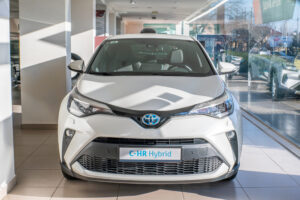
When embarking on car shopping in the bustling regions of Ontario, California, especially in the Inland Empire, you might find yourself contemplating purchasing a new car or a used car. One of the most intriguing and increasingly popular options available today is the hybrid car. Hybrid vehicles have been a game changer in the automotive industry, offering an eco-friendly alternative without compromising on performance. But a common question arises: Do hybrid cars require charging? Let’s delve into this topic and explore the intricacies of hybrid vehicles.
Before we address the charging question, it’s essential to understand what a hybrid car is. A hybrid car is a vehicle that combines a conventional internal combustion engine with an electric propulsion system. This dual-engine approach is designed to improve fuel efficiency, reduce emissions, and in some cases, enhance performance.
The answer to this question depends on the type of hybrid car. There are primarily two types of hybrid vehicles: standard hybrids and plug-in hybrids.
Hybrid cars offer a plethora of benefits, making them an attractive option for car shoppers in Ontario and the Inland Empire. Some of these benefits include:
If you’re in the market for a new or used car and considering a hybrid, there are several factors to keep in mind:
Hybrid vehicles play a significant role in reducing carbon footprint. By utilizing electric power, hybrids emit less greenhouse gases and pollutants. This is particularly important in areas like the Inland Empire, where vehicle emissions significantly contribute to air pollution.
The future of hybrid cars is promising. With advancements in technology and an increasing focus on sustainability, more car manufacturers are investing in hybrid technology. This means a wider range of models and more advanced features for consumers to choose from.
In conclusion, whether or not a hybrid car needs charging depends on the type of hybrid. Standard hybrids do not require external charging, while plug-in hybrids do. Hybrid vehicles offer numerous benefits including better fuel efficiency, lower emissions, and more often, enhanced performance. If you’re considering a hybrid car for your next vehicle purchase in Ontario, California, it’s a choice that combines environmental responsibility with driving pleasure.
For more information on hybrid cars and to explore a wide range of new and used car options,
While great effort is made to ensure the accuracy of the information on this site, errors can occur. Please verify all pricing and installed equipment information with a customer service representative. This is easily done by calling us or visiting us at the dealership.
Customer may not qualify for ALL Rebates shown. Some rebates are stackable and others can and cannot be combined. See Dealer For Complete Details.
We improve our products and advertising by using Microsoft Clarity to see how you use our website. By using our site, you agree that we and Microsoft can collect and use this data. Our privacy statement has more details.